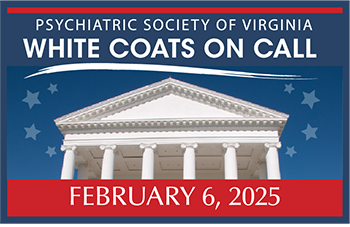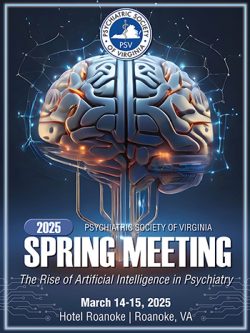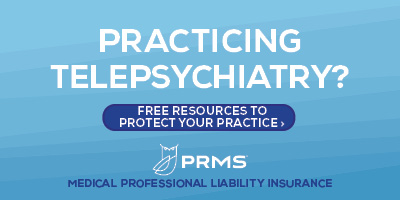Ageism in Mental Health Care: Combating Grand Biases to Connect with Grandparents
Shriti Patel, MD
Dr. Shriti Patel, who is a geriatric psychiatrist and residency program director at EVMS, presented a session titled, “Ageism in Mental Health Care: Combating Grand Biases to Connect with Grandparents”. In this talk, Dr. Patel defined the concept of Ageism and how it can affect the mental health of older adults, particularly in medical training and health care systems. She identified ways psychiatrists and psychiatric trainees might connect with older adults and combat ageism. She also utilized psychiatric principles, such as the biopsychosocial model, to expand assessments and appreciate life experience of geriatric psychiatric patients. Dr. Patel’s talk was in honor of her paternal grandmother, who lived until the age of 102.
Stigma as a Psychodynamic Force
William L. Harp, MD, DLFAPA
Dr. Bill Harp spoke on “Stigma as a Psychodynamic Force”. He presented a historical perspective on how stigma associated with mental illness was viewed in various cultures and time periods. Ancient Greece was kind to those with mental illness and their families as was European culture during Medieval times. The Renaissance period and Christianity were not kind, but a lessening of stigma took place during the Enlightenment and in modern times. The individual with a stigma, a mark, struggles with trying to meet the normative expectations of society. His communications must be carefully controlled so as not to expose his stigma. This can lead to constricted life experience. Authors addressing stigma indicate that it can affect family members and generations thereafter. Dr. Harp presented an index subject and his family, covering 3 generations to illustrate the impact that stigma can have. A takeaway from the talk was that psychiatrists can be more effective with their patients if they understand the effects of stigma.
Clozapine: Updates, Future Directions and Barriers to Success
L. Alex Ambrose DO; Katie Adams PharmD, BCPP, BCPS
Alex Ambrose DO and Katie Adams Pharm.D., BCPP, BCPS presented an overview of utilizing a Clozapine Clinic at VCU to expand access to Clozapine across the state of Virginia. During their presentation, they discussed current barriers negatively impacting clozapine prescriptions. Some of these include lack of familiarity, overestimation of side effects, and underestimation of patient interest. Dr. Adams then talked about future directions, including initiatives taken on by APA (American Psychiatric Association) and AAPP (American Association of Psychiatric Pharmacists) to petition for a re-evaluation of the REMS program.
Sleep Medicine for Child Psychiatrists
Abhishek Reddy, MD
“Sleep has an important role in maintaining mental and physical health across all ages. Understanding the neurophysiology of sleep reveals the intricate mechanisms that govern our sleep cycles and the ways disruptions in these processes can lead to a range of issues. Sleep and mental health are closely interconnected, with poor sleep quality often exacerbating symptoms of mental health disorders and vice versa. In children and adolescents, common sleep disorders such as insomnia, delayed sleep phase syndrome, restless legs syndrome, obstructive sleep apnea, and parasomnia can have significant impacts on mood, cognition, and overall functioning. Effective treatment of these disorders often requires a comprehensive approach, blending pharmacological treatments with non-pharmacological strategies like cognitive-behavioral therapy for insomnia (CBT-I), sleep hygiene education, and lifestyle modifications to support healthy sleep patterns”







